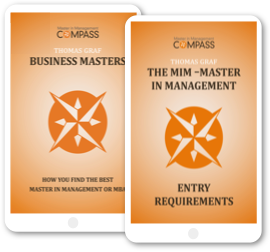The US News and the Financial Times published a finance university Ranking for the best Masters in Finance Programs.
More precisely, the FT published two Masters in Finance rankings: One includes programs for people who just graduated (Pre-Experience Programms) and one includes Finance Masters for people with work experience in Finance (Post-Experience Programmes). In addition, the Financial Times also published a listing of the best Master in Finance programs in general.
- Please use our Search-Engine to find more than 450 Finance Masters in our database
- Financial Times Masters in Finance Ranking
- QS World University Ranking for Masters in Finance 2021
The FT Ranking for the best Masters in Finance programs 2014 is based on surveys among graduates from 2011, take three years after graduation. Similar to the Master in Management ranking, it applies a multitude of dimensions based on the feedback from universities and alumni, for example:
- the difference between the salary before and three years after the program
- how many graduates found an employer three months after the program
- how international is the board
- how international are the student cohorts and courses
- etc.
FT Top Schools for the best Masters in Finance programs (Pre-Experience Ranking)
- HEC Paris
- ESADE Business School
- Edhec Business School
- Essec Business School
- IE Business School
- University of St Gallen
- University of Oxford: Saïd
- ESCP Europe and Università Bocconi
- ----
- MIT Sloan and Skema Business School
- ----
- Grenoble Graduate School of Business
- Peking University: Guanghua and Stockholm School of Economics
- ----
- Warwick Business School
- Imperial College Business School
- City University: Cass
- Cranfield School of Management
- Nova School of Business and Economics
- Frankfurt School of Finance and Management
- Boston College, Carroll and Kozminski University
- ----
- HEC Lausanne
- Vlerick Business School
- Rotterdam School of Management, Erasmus University
- Eada Business School
- Illinois, Institute of Technology, Stuart
- Durham Business School
- Washington University, Olin
- Tulane University, Freeman
- Brandeis University International Business School and Henley Business School
- ----
- University of Edinburgh Business School and University of Strathclyde Business School
- ----
- Lancaster University Management School
- University College Dublin: Smurfit
- University of Rochester: Simon
- Nottingham University Business School
- University of Glasgow: Adam Smith
- QUT Business School
- Leeds University Business School
- University of Bath School of Management
- Tilburg University
- Universidad Adolfo Ibanez
- University of Arizona: Eller
FT Top Schools for the best Master in Finance programs (Post-Experience Ranking)
- London Business School
- University of Cambridge, Judge
- University of Illinois at Urbana-Champaign
- University of Hong Kong
- Florida International University: Chapman
Further Information on the best Masters in Finance Programs
- Specializations: Master in Finance: Admissions, Content, and Career
- Programs: Use the Filter "Program Focus: Master in Finance" of our Search-Engine to find Master in Finance programs.
Background on the best Masters in Finance programs:
The Master in Finance is a so-called specialized Management Master. In contrast to the Master in Management and the Master of Business who are general management programs, Finance Masters provide you with in-depth knowledge in the specific areas of investment management, corporate finance, and financial analysis. Here are some statistics from our database:
- About 30 percent of the Master in Finance programs (in our databse) require an undergraduate degree in business-related subjects. The other 70 percent are open for graduates from all disciplines.
- About 70 percent of the programs (in our databse) are fulltime program while the rest can be studied part-time, for example on a weekly-track, online or through a module structure of residential periods.
- About 65 percent of the programs (in our database) can be studied within one year. 27 percent can be studied in between one and two years, and only 8 percent take more than two years.
Graduates from the best Masters in Finance programs usually can expect excellent career options either in the corporate world, research institutions, the public sector, or non-profit organizations. Some of the best Masters in Finance programs also offer the opportunity to extend the Master in Finance to the Chartered Financial Analyst (CFA) exam. Programs such as the MSc in Finance at the University of Melbourne partner with the CFA Institute, the global association for investment professionals that awards the CFA® designation. The Melbourne Finance Master includes about 70% of the CFA knowledge in its curriculum and offers sample exams so that the students can prepare themselves for the CFA exams in addition to the Master degree.
Further articles on the Master in Finance and Masters in Management
By Thomas Graf
FAQ - Frequently asked questions
According to the list published by the Financial Times, the best Masters in Finance programs for pre-experience students are the programs offered by the HEC Paris, the ESADE Business School and the Edhec Business School. For post-experience students, the programs at the London Business School, the University of Cambridge, Judge and the University of Illinois at Urbana-Champaign have achieved the top spots.
To compile the finance university ranking, the Financial Times looked at several different criteria: the difference between the salary before and three years after the program, how many graduates found an employer three months after the program, how international the board is, how international the student cohorts and courses are, and several more.
The Masters in Finance rankings can provide you with a list of universities to check out when you want to gain a degree in finance. You can compare their rankings and look more closely at what their programs offer and how that compares to what you want out of your degree and university experience. You can also look at tuition fees and weigh whether a more or less expensive program would make more sense for you.









